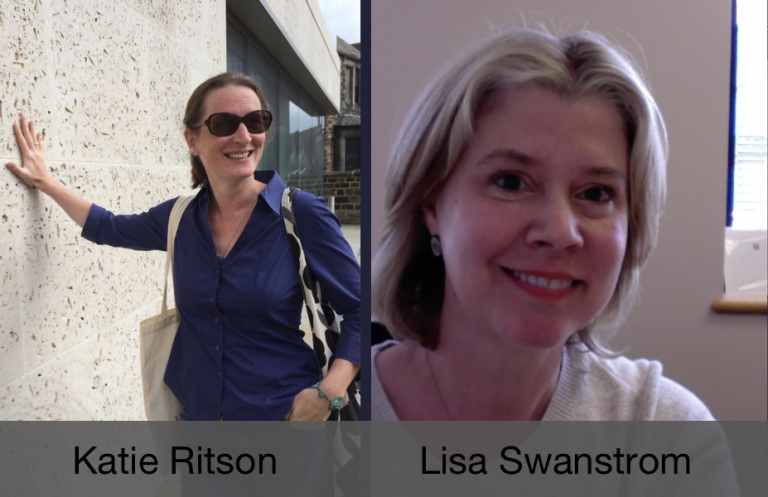It is with great pleasure that we can now announce the launch of the Greenhouse Fellows Program and the first two fellows: Dr. Katie Ritson (Rachel Carson Center for Environment and Society, Munich, Germany) and associate professor Dr. Lisa Swanstrom (University of Utah, USA). We aim to have annual calls for short-term guest researcher stays through the Greenhouse Fellow Programs, stay tuned for more information.
Through a call from the University of Stavanger on the occasion of the opening of the new campus hotel Ydalir, we have secured funding for the 2018 Greenhouse Fellows to visit Stavanger in May-June. Dolly Jørgensen nominated Ritson and Eric D. Rasmussen nominated Swanstrom. Both Fellows will get the opportunity to present their research at Greenhouse events.
Katie Ritson is managing editor at the Rachel Carson Center for Environment and Society in Munich. She studied German, Russian, and Scandinavian languages at the University of Cambridge and at the Ludwig Maximilian University Munich, and received her doctoral degree in Scandinavian Studies and Comparative Literature from LMU Munich in 2016. She is currently serves on the advisory board of the European Association for the Study of Culture, Literature, and the Environment (EASCLE) and is a member of ENSCAN (Ecocritical Network for Scandinavian Studies) and the ESEH (European Society for Environmental History).
She spent some time as a guest researcher at UiS in 2014 and is looking forward to returning in 2018!
Katie will be using her time at UiS to finalise the manuscript of her book Shifting Sands of the North Sea Lowlands: Literary and Historical Imaginaries to be published by Routledge. The book is born out of the doctoral dissertation that she defended in 2016, and shows how the fragile landscapes around the North Sea have served as bellwethers for environmental concern both now and in the recent past. Shifting Sands explores literary sources drawn from the countries around the North Sea from the mid-nineteenth century onwards, taking them out of their established national and cultural philological contexts and reframing them in the light of human concern with fast-changing and hazardous environments.
Elizabeth (Lisa) Swanstrom is an Associate Professor of English at the University of Utah. She also serves as a Co-Editor and “Critical Ecologies” Thread Editor of the electronic book review and as a Co-Editor of Science Fiction Studies. Her research and teaching interests include science fiction, media theory, and the digital & environmental humanities. Her first book, Animal, Vegetable, Digital: Experiments in New Media Aesthetics and Environmental Poetics, was published in 2016 by the University of Alabama Press and received the Elizabeth Agee Prize for outstanding scholarship in the field of American literary studies. She is committed to the notion that digital art and electronic literature can provide opportunities for experiencing human-environmental contingency, for demonstrating the human body’s coextension with the environment, for aiding in conservation practices, and for expressing the agency of natural spaces. Before joining the English Department at University of Utah, she was assistant professor at Florida Atlantic University, a postdoctoral research fellow at Umeå University’s HUMlab in northern Sweden, and the Florence Levy Kay Fellow in the Digital Humanities in the English Department at Brandeis University in Massachusetts. She earned her Ph.D. in Comparative Literature from the University of California, Santa Barbara.
During her stay in Stavanger, Lisa will be working on her current book project, “Organic Code, the Natural Syntax of Artificial Signs.” She is examining how early science fiction (1818-1917) was wholly fascinated with natural history, especially in terms of the pathways that evolution via natural selection might take in the future, as well as how scientific practice might shepherd its trajectory. With Golden Age science fiction, however, as well as the subsequent pulp explosion of the 1950s and the New Wave of the 1960s, a new interest in computation emerged. This shift in scope is well documented, but the residue of influence that each leaves on the other is not. Her project considers the reciprocal relationship between computational and natural histories, particularly the points of contact that occur between artificially constructed languages of computation and natural sign systems.
